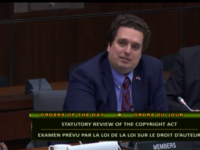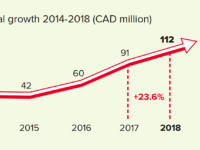One of Canada’s longstanding digital and economic policy concerns has involved innovation, with fears that the Canadian economy is failing to keep pace with other, more innovative economies. Some point to intellectual property as a critical part of policy equation, arguing that stronger IP laws would help incentivize greater innovation. Economists Nancy Gallini and Aidan Hollis recently released an interesting report for the Institute for Research on Public Policy examining the role of patents and patent policy in Canadian innovators’ decisions to sell their IP rather than continue to develop it in Canada, and the incentives driving this decision. Professor Hollis joins the podcast this week to discuss the report, its link to innovation policy, and what the government could consider to address ongoing concerns.
Latest Posts
Fool’s Gold: Why a Federal Court Judge Was Wrong To Issue a Website Blocking Order Against GoldTV
A Federal Court of Canada judge issued a major website blocking decision late Friday, granting a request from Bell, Rogers, and Groupe TVA to block access to a series of GoldTV streaming websites. The order covers most of the Canada’s large ISPs: Bell, Eastlink, Cogeco, Distributel, Fido, Rogers, Sasktel, TekSavvy, Telus, and Videotron. The case is an important one, representing the first extensive website blocking order in Canada. It is also deeply flawed from both a policy and legal perspective, substituting the views of one judge over Parliament’s judgment and relying on a foreign copyright case that was rendered under markedly different legal rules than those found in Canada.
The LawBytes Podcast, Episode 32: Reflections from the Open Source Member of Parliament – A Conversation with Ex-MP David Graham
David Graham was not your typical Member of Parliament. A Liberal MP from the Quebec riding of Laurentides-Labelle, Graham brought a background in open source issues to Parliament Hill. Over his four years as an MP, Graham was seemingly everywhere when it came to digital policy. Whether in the House of Commons talking net neutrality, the Industry committee copyright review or the Ethics committee work on privacy, Graham emerged as the rare MP equally at home in the technology and policy worlds. Graham’s bid for re-election fell short, but this week he joins the Lawbytes podcast to reflect on his experience in Ottawa with thoughts on copyright, privacy, technology policy, and the use of digital tools for advocacy purposes.
Federal Court Short-Circuits Voltage Pictures’ Canadian File Sharing Class Action Copyright Lawsuit Strategy
The Federal Court of Canada has strongly rejected an attempt by Voltage Pictures, one of Canada’s most litigious copyright companies, to use a reverse class action lawsuit approach to sue potentially thousands of Canadians. The court ruled that Voltage met none of the requirements for class action certification and in the process confirmed doubts that merely pointing to an IP address is sufficient grounds for a copyright infringement claim. The Voltage strategy was launched in 2016 as it sought certification of the class, a declaration that each member of the class had infringed its copyright, an injunction stopping further infringement, damages, and costs of the legal proceedings (the issues were discussed in this Lawbytes podcast episode with James Plotkin).
CISAC Labels Canada a “Digital Champion” for Digital Music Royalty Growth
The Canadian music industry has engaged in extensive lobbying efforts on copyright invariably pointing to concerns regarding revenues from digital music services. But the International Confederation of Societies of Authors and Composers (CISAC), which brings together 239 collective management organizations in 122 countries and five regions, recently released a global report that told a much different story, calling Canada a digital champion given the share of royalty revenues coming from digital services. CISAC represents over four million creators active in five major repertoires: audiovisual, dramatic, literature, music and visual arts. Its report identifies five digital champions within its top 20 global markets. Canada sits third in terms of both digital share and five year growth.











